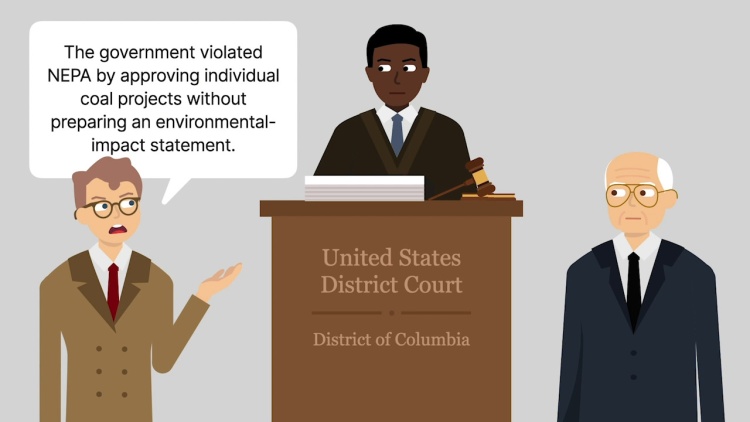Kleppe v. Sierra Club
United States Supreme Court
427 U.S. 390 (1976)
- Written by Craig Conway, LLM
Facts
In an effort to protect their members’ enjoyment and use of the Northern Great Plains Region (the Region), the Sierra Club and other environmental interest groups (plaintiffs) filed suit in federal court against Thomas Kleppe, in his official capacity as Secretary of the Department of Interior, and others (defendants) seeking injunctive and declaratory relief to require federal agencies to develop and issue an environmental impact statement (EIS) pursuant to the National Environmental Policy Act of 1969 (NEPA) on the entire Region prior to the agencies’ approving any coal-related or mining operations. Section 102(2)(C) of NEPA required all agencies to include an EIS, “in every recommendation or report on proposals for legislation and other major Federal actions” significantly affecting the quality of the human environment. 42 U.S.C. § 4332(2)(C). The district court concluded that plaintiffs had failed to sufficiently show that the defendants had either (1) proposals for legislation or (2) major Federal actions pending and granted summary judgment in favor of defendants. Plaintiffs appealed. The court of appeals reversed and held that a regional plan or program was “contemplated” requiring an EIS under the statute. The U.S. Supreme Court granted certiorari to review.
Rule of Law
Issue
Holding and Reasoning (Powell, J.)
Concurrence
What to do next…
Here's why 907,000 law students have relied on our case briefs:
- Written by law professors and practitioners, not other law students. 47,100 briefs, keyed to 996 casebooks. Top-notch customer support.
- The right amount of information, includes the facts, issues, rule of law, holding and reasoning, and any concurrences and dissents.
- Access in your classes, works on your mobile and tablet. Massive library of related video lessons and high quality multiple-choice questions.
- Easy to use, uniform format for every case brief. Written in plain English, not in legalese. Our briefs summarize and simplify; they don’t just repeat the court’s language.






